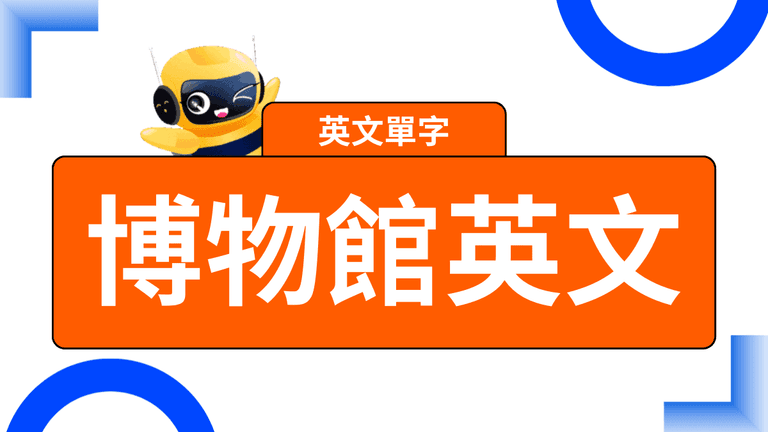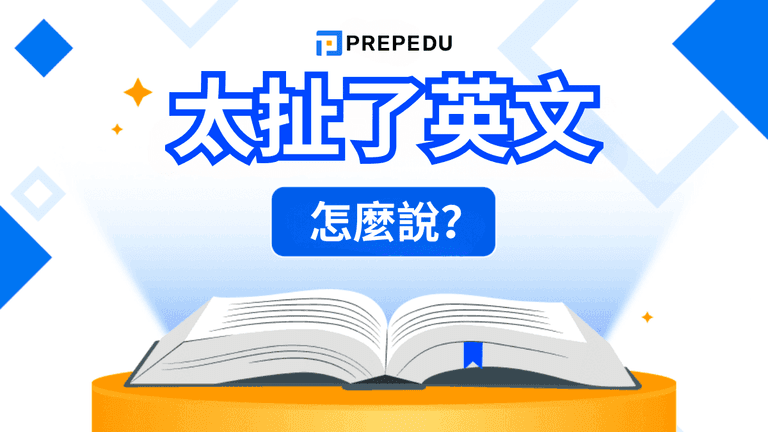零條件句 (Zero Conditional Sentences) 深度解析:從核心定義,句型結構,倒裝變化到三大實戰練習
什麼是零條件句?如何正確使用 Zero Conditional Sentences?零條件句是英文條件句系統中最基礎且實用的句型,專門用於表達普遍真理,科學事實和個人習慣。當你想要說明「只要條件 A 發生,結果 B 必然發生」的恆定關係時,零條件句就是最精準的表達工具。例如:「If you heat water to 100°C, it boils」(如果你將水加熱至 100°C,它就會沸騰)——這種不受時間限制,永恆成立的因果關係,正是零條件句的核心特徵。
然而,許多英語學習者在實際運用時,經常與第一條件句產生混淆,或者不確定何時該使用 if,when 還是 whenever。更進階的學習者可能想深入了解:零條件句能否結合祈使句表達指令?倒裝結構適用於哪些正式場合?如何透過豐富的 Type 0 例子快速內化應用技巧?這些細節往往是掌握零條件句的關鍵所在。
本文由 PREPEDU 專業教學團隊精心編撰,將帶你從零條件句的核心定義與中文意涵出發,完整解析標準句型公式 If + S + V(s/es), S + V(s/es),三大核心應用情境,與第一條件句的本質差異,並提供大量台灣,香港在地化中英對照範例和三種題型的實戰練習。無論你是準備 IELTS,TOEIC 等英語檢定,或是希望在日常溝通,學術寫作中更精準表達因果關係,這份完整指南都將幫助你徹底掌握零條件句的所有應用層面。
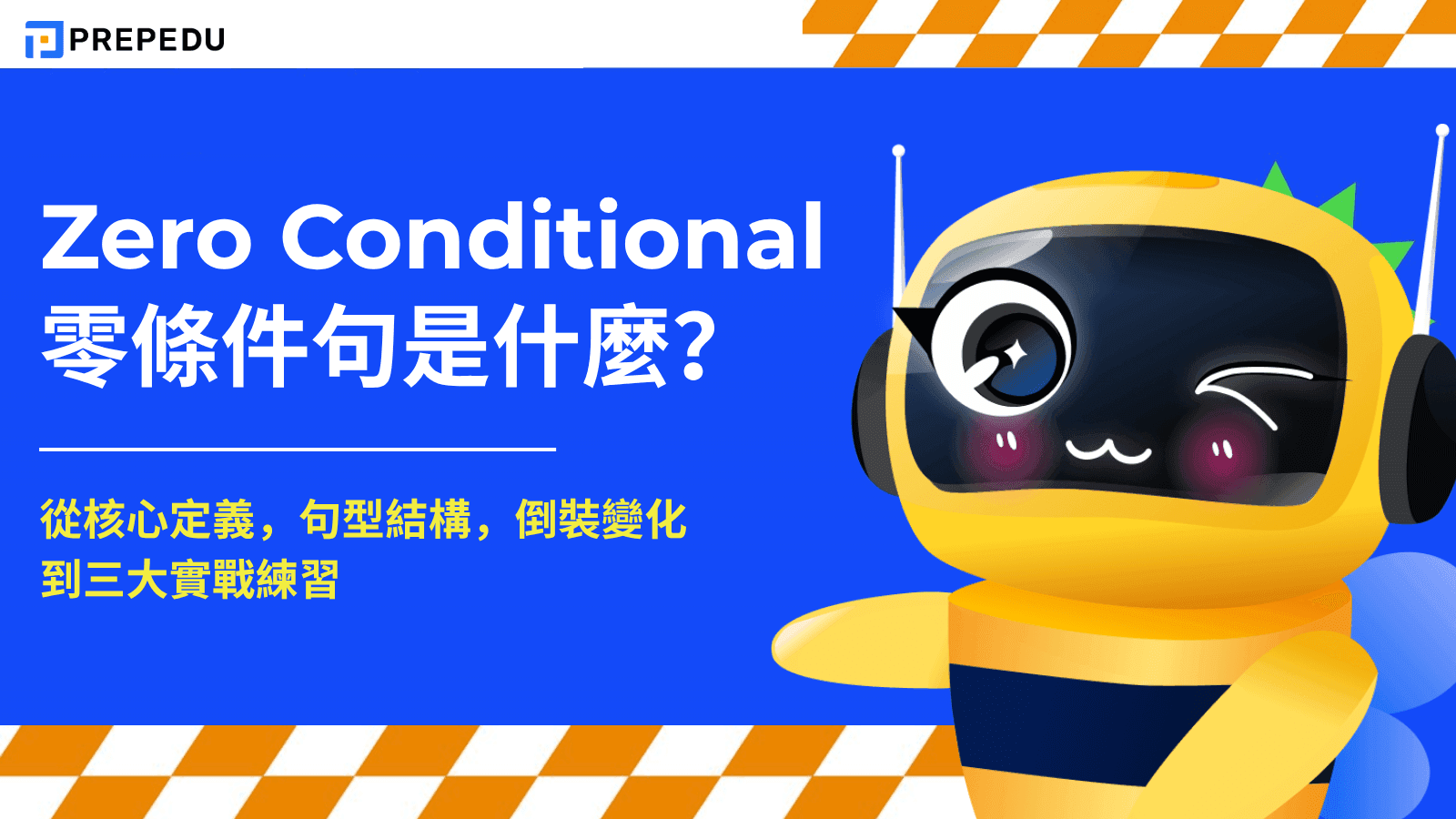
I. 什麼是零條件句 (Zero Conditional Sentences)?
什麼是 Zero Conditional? 零條件句是用於表達普遍真理,科學事實,個人習慣或既定規則,其特點是「當條件為真時,結果恆為真」。這是一種描述必然因果關係的句型,在英文中屬於英文條件句 (Conditional Sentences) 的基礎類型。
零條件句的基本公式:
If + S1(主詞)+ V(s/es)(現在簡單式動詞)+ O, S2(主詞)+ V(s/es)(現在簡單式動詞)+ O
這個文法結構的核心概念包含兩個關鍵要素:
-
普遍性:零條件句適用於所有情況,而非特定的單一事件,它描述的是一種規律性的因果關係,任何時候條件成立時結果都會發生。
-
時間性:這種句型不受時間限制,無論過去,現在或未來,只要條件成立,結果就必然發生,具有永恆性和確定性。
-
真實性:零條件句描述的是客觀存在的事實或規律,而非假設或想像的情境,因此兩個子句都使用現在簡單式。
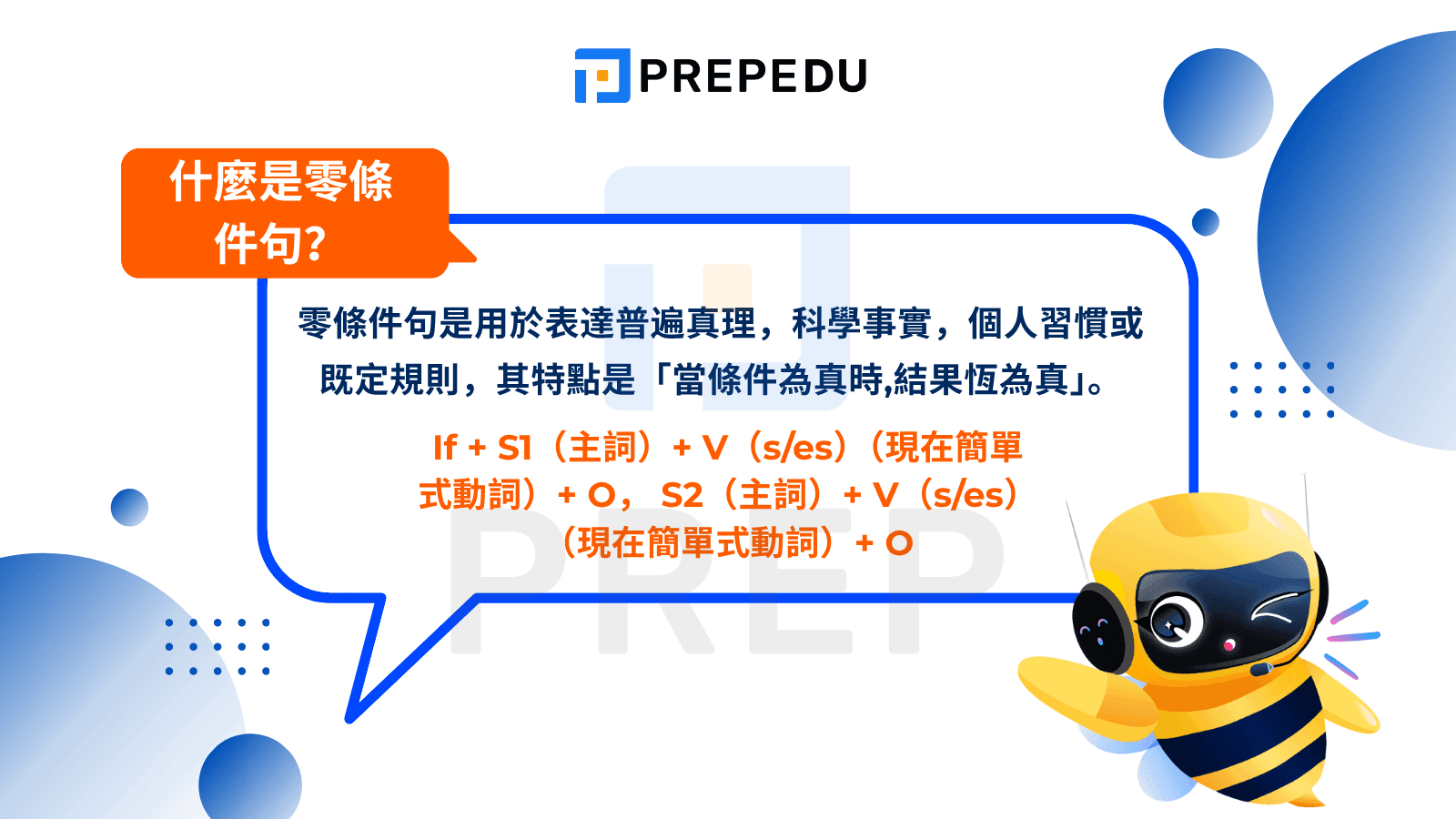
II. 為何及何時使用?三大核心情境與豐富範例 (Type 0 例子)
理解零條件句的應用情境,能幫助你在正確的場合使用這個句型。以下三種情境是零條件句最常見的使用時機,每個情境都搭配具體的 Type 0 例子,讓你能快速掌握其應用方式。
|
情境類型 |
說明 |
範例 |
|
科學事實與自然現象 |
描述自然界中不變的定律或科學原理,這些是經過驗證的客觀真理,具有 100% 的確定性 |
|
|
個人習慣與規律行為 |
表達個人在特定條件下的固定反應或習慣性行為,這些是基於個人經驗的相對真理 |
|
|
規則,指示與操作說明 |
用於說明遵循某項規則或執行某個步驟後的必然結果,常見於使用手冊,規章制度或指示說明 |
|
這些零條件句範例展示了這個句型如何在不同場景中發揮作用,從客觀的科學定律到主觀的個人經驗,再到社會規範的表述,都是零條件句的適用範圍。
III. 揭秘零條件句的黃金結構與句型變化
掌握零條件句的結構是正確使用的第一步。這個句型的文法架構簡單明瞭,但其中包含的變化和靈活性卻是需要細心理解的重點。
1. 基礎公式:If + 現在簡單式, ... 現在簡單式
零條件句的標準結構遵循一個清晰的公式:
If + S1(主詞)+ V(s/es)(現在簡單式動詞)+ O, S2(主詞)+ V(s/es)(現在簡單式動詞)+ O
這個公式的關鍵在於兩個子句都使用「現在簡單式」時態。條件子句 (if-clause) 提出條件,結果子句 (result clause) 說明必然發生的結果。兩個子句都使用相同時態是零條件句區別於其他條件句的重要特徵。
範例解析:
-
If Li Hua touches fire, it burns her skin. (如果李華碰觸火,火就會灼傷她的皮膚。)
-
If children play outside regularly, they get enough fresh air and vitamin D. (如果孩子們定期在戶外玩耍,他們就能獲得足夠的新鮮空氣和維生素 D。)
-
If Wu Ming doesn't save his files on the computer, he loses all his work. (如果吳明不在電腦上儲存檔案,他就會失去所有工作成果。)
2. 句型靈活性: 順序調換與連接詞替換
零條件句提供了兩種重要的靈活運用方式,讓你的表達更加自然流暢。
|
類型 |
說明 |
範例 |
|
結果子句前置 |
你可以將結果子句移到句首,此時不需要使用逗號分隔兩個子句。這種調換不改變句意,但能根據語境調整表達的重點。 公式調整: S2 + V(s/es) + O + if + S1 + V(s/es) + O |
|
|
If 與 When/ Whenever 的互換性 |
在零條件句中,「if」、「when」和「whenever」通常可以互換使用而不影響句意。三者都指向一個確定會發生的結果,差異在於「when」更強調時間的必然性,「whenever」強調「每當」的重複性,而「if」則保留了些微的條件意味。 |
|
IV. 零條件句的進階應用:讓你的英文更道地
掌握基礎結構後,零條件句的進階應用能讓你的英文表達更加豐富多樣。零條件句並非只有一種固定形式,透過結合不同的句型結構,你可以表達更細緻的語意。
1. 結合祈使句 (Imperative)
公式變化:
If + S1 + V(s/es) + O, V(原形) + O (祈使句)
在結果子句中使用祈使句,可以直接給予指令或建議,這種用法在日常對話和說明文中特別常見。
-
If you feel tired during work, take a 10-minute break. (如果你在工作時感到疲倦,就休息十分鐘。)
-
If the fire alarm in our Taipei office rings, evacuate the building immediately through the nearest exit. (如果我們台北辦公室的火警警報響起,立即從最近的出口疏散大樓。)
-
If passengers on the Hong Kong MTR see suspicious items, report them to station staff right away. (如果香港地鐵的乘客看到可疑物品,立即向站務人員報告。)
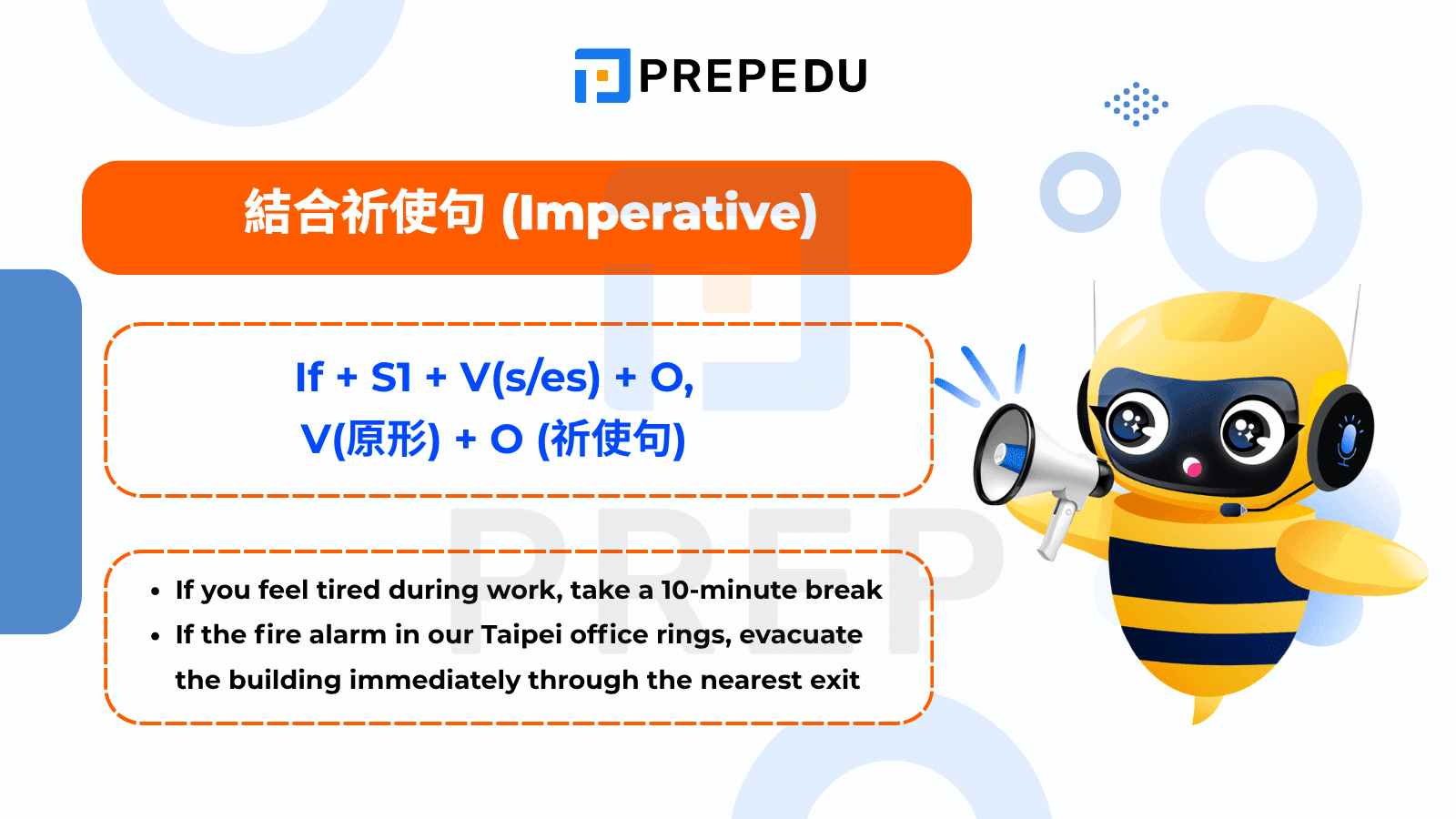
2. 加入情態動詞 (Modal Verbs)
公式變化:
If + S1 + V(s/es) + O, S2 + modal verb + V(原形) + O
在結果子句中加入情態助動詞如 must, should, can, may, might 等,能表達義務,建議,能力或可能性,讓句意更加精確。
-
If students at National Taiwan University want to succeed in their exams, they must dedicate at least three hours daily to studying. (如果國立台灣大學的學生想要在考試中成功,他們就必須每天至少投入三小時學習。)
-
If you exercise regularly for 30 minutes, you should see noticeable health improvements within two months. (如果你每次規律運動三十分鐘,你應該會在兩個月內看到明顯的健康改善。)
-
If Wang Lei works overtime on weekends, he may request compensatory time off. (如果王磊在週末加班,他可以申請補休。)
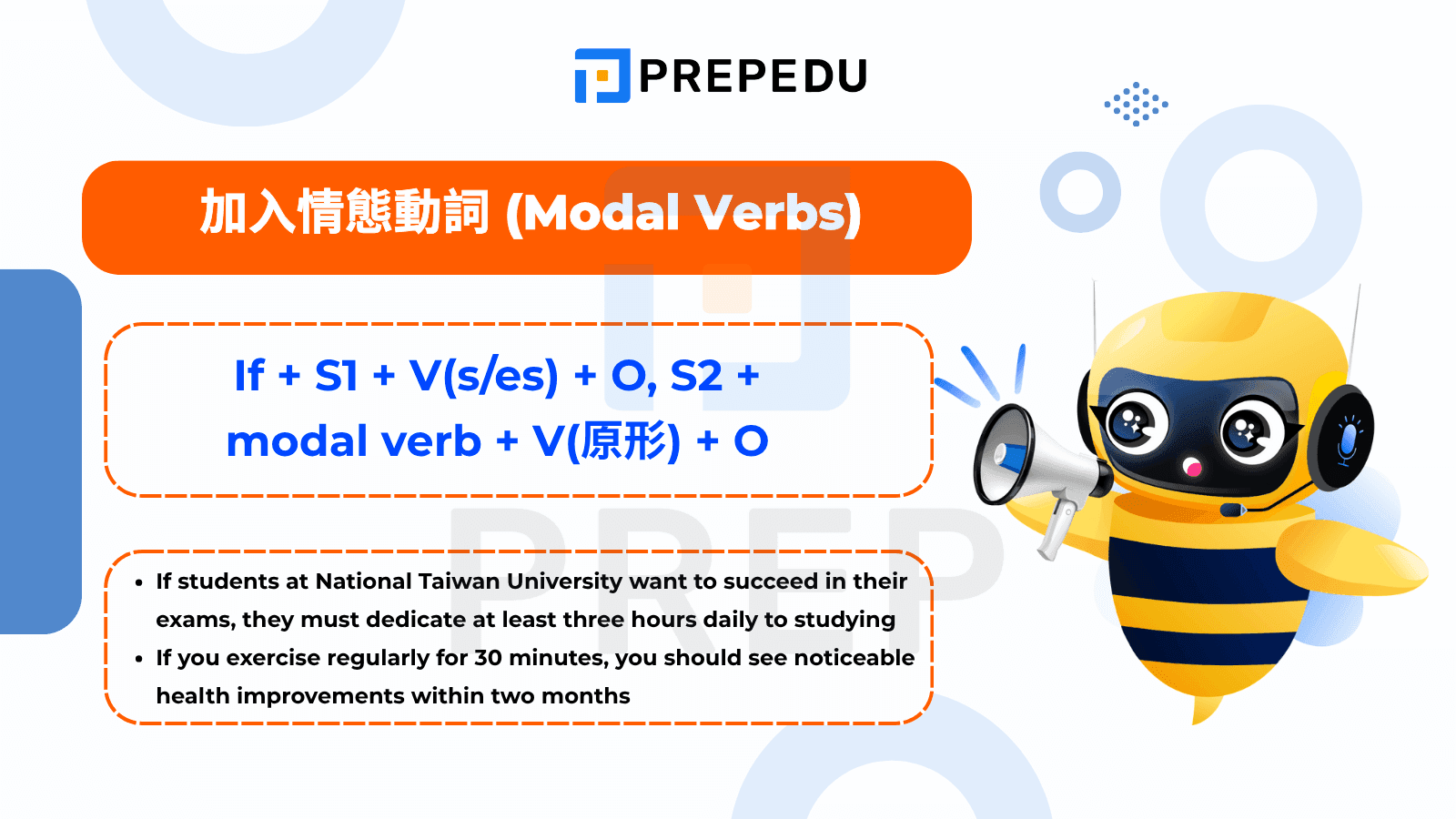
3. 否定句與疑問句
零條件句也可以用否定或疑問的形式表達,增加表達的彈性。
否定公式:
If + S1 + don't/doesn't + V + O, S2 + don't/doesn't + V + O
-
If you don't water the plants in your Taipei apartment regularly, they don't grow well and eventually die. (如果你不定期給台北公寓裡的植物澆水,它們就不會長得好並最終死亡。)
-
If Liu Wei from Hong Kong doesn't wear his glasses, he can't see the whiteboard clearly in class. (如果來自香港的劉偉不戴眼鏡,他在課堂上就看不清楚白板。)
疑問公式:
What/How + do/does + result happen + if + S1 + V(s/es) + O?
-
What happens if you add salt to boiling water? (如果你在沸水中加鹽會發生什麼事?)
-
How does metal react if you heat it to extremely high temperatures? (如果你將金屬加熱到極高溫度,金屬會如何反應?)
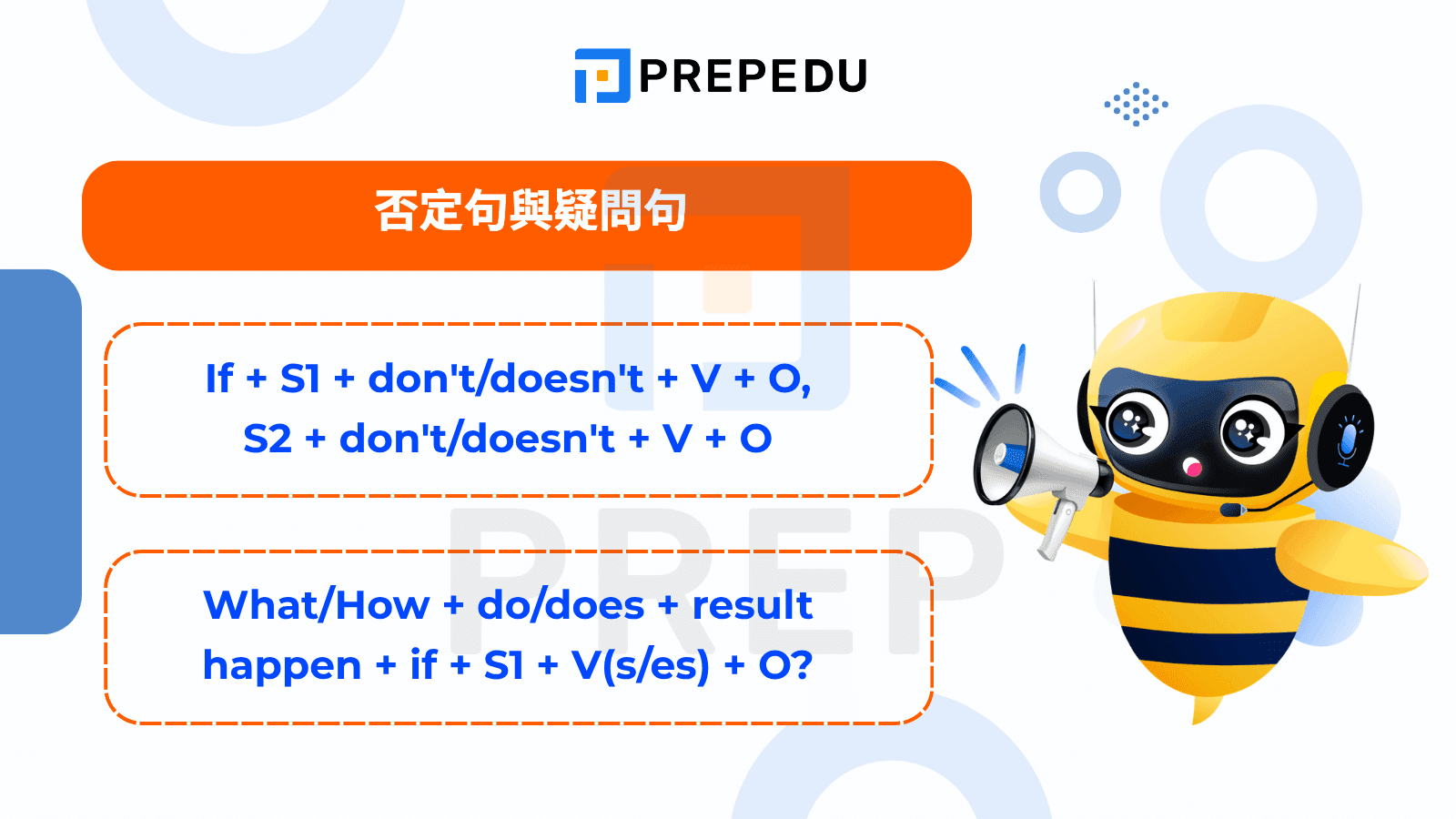
V. 零條件句的倒裝結構 (Inversion):一個較少見但重要的變化
倒裝句在零條件句中並不常見,但在特定的正式文體或文學作品中偶爾會出現。了解這個結構能提升你對進階英文的理解能力,並展現更高層次的語言掌握度。
倒裝公式:
Should + S + V(原形) + O, S2 + V(s/es) + O
倒裝結構在零條件句中主要用於表達禮貌,提出請求或尋求協助的語氣。
範例對比:
|
標準零條件句 |
倒裝結構零條件句 |
|
If the temperature drops below 10°C, water in outdoor pipes freezes. (如果溫度降至攝氏十度以下,戶外水管中的水就會結冰。) |
Should the temperature drop below 10°C, water in outdoor pipes freezes. (若溫度降至攝氏十度以下,戶外水管中的水就會結冰。) |
|
If Zhang Hua is available when you arrive, please ask her about the meeting schedule. (如果你到達時張華有空,請向她詢問會議時程。) |
Should Zhang Hua be available when you arrive, please ask her about the meeting schedule. (若你到達時張華有空,請向她詢問會議時程。) |
倒裝句型在零條件句中較為罕見的原因,在於倒裝通常帶有假設或更正式,更禮貌的語氣,這與零條件句所描述的「恆定事實」之間存在些微的語氣衝突。因此,在日常溝通中,使用標準的 if 結構會更加自然適切。倒裝形式主要保留給正式信函,學術寫作或需要表達高度禮貌的商務場合。
VI. 關鍵區別:零條件句 vs. 第一條件句的深度比較
許多學習者容易混淆零條件句和第一條件句,因為兩者都使用 if 連接詞且結構相似。然而,它們在時態使用,語意重點和應用情境上有著本質差異,理解這些差異是正確運用的關鍵。
核心差異概述:
|
比較面向 |
零條件句 (Zero Conditional) |
第一條件句 (First Conditional) |
|
時態結構公式 |
If + S + V(s/es) + O, S + V(s/es) + O |
If + S + V(s/es) + O, S + will + V(原形) + O |
|
描述對象 |
普遍真理,科學事實,習慣,規則 |
未來可能發生的特定事件或情況 |
|
時間性 |
不受時間限制,永恆成立,任何時候都適用 |
針對未來的預測,計畫或承諾 |
|
確定性 |
結果必然發生 (100% 確定性) |
結果可能發生 (有條件的,不確定的) |
|
範例 |
If water at sea level reaches 100°C, it boils. (海平面的水達到 100°C 就會沸騰。) → 永遠成立的科學事實 |
If it rains in Taipei tomorrow, I will stay home and work. (如果明天台北下雨,我就會待在家工作。) → 針對明天這個特定情況的預測 |
|
適用情境 |
說明規律,自然法則,操作程序,個人習慣 |
表達計畫,預測,承諾,警告 |
|
可替換連接詞 |
if, when, whenever (意思相同) |
if (不能用 when 替換而保持相同意思) |
|
主觀性 |
客觀,中性,陳述事實 |
主觀,預測,個人判斷 |
實例對比分析
讓我們透過具體例句來深化對零條件句和第一條件句的理解:
|
範例 |
零條件句 (Zero Conditional) |
第一條件句 (First Conditional) |
|
範例一: 科學事實 vs. 特定預測 |
If you heat metal, it expands. (如果你加熱金屬,它就會膨脹。) → 這是物理定律,任何時候,任何金屬都成立 |
If you heat the oven now, dinner will be ready by 7 PM tonight. (如果你現在預熱烤箱,晚餐會在今晚七點準備好。) → 這是針對今晚這個特定情況的預測 |
|
範例二: 個人習慣 vs. 未來計畫 |
If Chen Ming drinks milk, he gets a stomach ache. (如果陳明喝牛奶,他就會胃痛。) → 每次都發生的個人體質反應 |
If Chen Ming drinks this expired milk, he will get sick. (如果陳明喝這瓶過期牛奶,他就會生病。) → 針對這瓶特定過期牛奶的預測 |
|
範例三: 規則說明 vs. 特定情境警告 |
If students at this Hong Kong school are late, they must report to the office. (如果這所香港學校的學生遲到,他們就必須到辦公室報到。) → 學校的固定規則 |
If you are late for tomorrow's important meeting, the boss will be very angry. (如果你明天的重要會議遲到,老闆會非常生氣。) → 針對明天特定會議的警告 |
這個比較表格和實例能幫助你在實際應用時快速判斷應該使用零條件句還是第一條件句,避免常見的混用錯誤。
VII. 實戰練習坊:三種題型鞏固你的零條件句能力
理論知識需要透過實際練習才能真正內化。以下三種題型涵蓋了零條件句學習的核心要素,從動詞時態到句子結構,再到錯誤辨識,讓你全方位提升運用能力。
1. 練習一:動詞填空 (專注時態正確性)
請在括號中填入動詞的正確形式 (現在簡單式)。記住零條件句的公式:If + S + V(s/es) + O, S + V(s/es) + O
-
If you __________ (press) the red emergency button in Taipei MRT, the train __________ (stop) immediately.
-
If water __________ (freeze) at 0°C, it __________ (become) solid ice.
-
If Lin Xiaomei from Taichung __________ (not eat) breakfast regularly, she __________ (feel) dizzy by noon.
-
If the morning sun __________ (shine) directly on these plants, they __________ (grow) much faster.
-
If you __________ (mix) red and white paint thoroughly, you __________ (get) pink color.
-
If Wang Qiang __________ (work) overtime every weekend, he __________ (earn) double pay.
-
If students at Hong Kong University __________ (ask) relevant questions, professors __________ (answer) them patiently.
-
If the fire alarm in our building __________ (go) off unexpectedly, everyone __________ (know) there's an emergency.
-
If you __________ (not save) important files regularly, you __________ (lose) all your work data.
-
If babies __________ (cry) continuously for more than 10 minutes, they usually __________ (need) something urgent.
-
If Chen Hua from Tainan __________ (drink) cold water quickly, she __________ (get) a headache.
-
If passengers on Taiwan High Speed Rail __________ (not show) valid tickets, they __________ (pay) a fine.
參考答案:
-
press / stops
-
freezes / becomes
-
doesn't eat / feels
-
shines / grow
-
mix / get
-
works / earns
-
ask / answer
-
goes / knows
-
don't save / lose
-
cry / need
-
drinks / gets
-
don't show / pay
2. 練習二:合併句子 (掌握完整句構)
請使用零條件句將以下兩個句子合併成一個完整的句子。
-
You add sugar to tea. The tea tastes much sweeter.
-
People in Taipei exercise regularly at the gym. They stay healthy and energetic.
-
The temperature drops below freezing point. Water in the pond turns to ice.
-
Li Wei doesn't charge his smartphone overnight. The battery dies by afternoon.
-
Students at this Hong Kong school review their notes after class. They remember information much better during exams.
-
You heat cooking oil in the wok. It becomes liquid and ready for frying.
-
The traffic light at this Taichung intersection turns green. Cars and scooters can move forward safely.
-
Plants in the office get direct sunlight through windows. They produce oxygen during daytime.
-
Zhang Xiaojun speaks clearly in Mandarin during presentations. International colleagues understand him better.
-
The photocopier in our office overheats after continuous use. It shuts down automatically for 15 minutes.
參考答案:
-
If you add sugar to tea, the tea tastes much sweeter. (如果你在茶中加糖,茶就會嚐起來更甜。)
-
If people in Taipei exercise regularly at the gym, they stay healthy and energetic. (如果台北的人們在健身房規律運動,他們就會保持健康和精力充沛。)
-
If the temperature drops below freezing point, water in the pond turns to ice. (如果溫度降至冰點以下,池塘裡的水就會變成冰。)
-
If Li Wei doesn't charge his smartphone overnight, the battery dies by afternoon. (如果李偉不在夜間充電他的智慧型手機,電池在下午就會沒電。)
-
If students at this Hong Kong school review their notes after class, they remember information much better during exams. (如果這所香港學校的學生在課後複習筆記,他們在考試時就會記得更好。)
-
If you heat cooking oil in the wok, it becomes liquid and ready for frying. (如果你在炒鍋中加熱食用油,它就會變成液體並準備好煎炸。)
-
If the traffic light at this Taichung intersection turns green, cars and scooters can move forward safely. (如果這個台中路口的交通號誌轉綠,汽車和機車就可以安全向前移動。)
-
If plants in the office get direct sunlight through windows, they produce oxygen during daytime. (如果辦公室的植物透過窗戶獲得直射陽光,它們在白天就會產生氧氣。)
-
If Zhang Xiaojun speaks clearly in Mandarin during presentations, international colleagues understand him better. (如果張小俊在簡報時用中文清晰表達,國際同事就會更了解他。)
-
If the photocopier in our office overheats after continuous use, it shuts down automatically for 15 minutes. (如果我們辦公室的影印機在持續使用後過熱,它就會自動關機十五分鐘。)
3. 練習三:錯誤辨析 (挑戰常見誤用)
以下句子中各有一個錯誤,請找出並改正。特別注意零條件句不應該使用 will/would 等未來式。
-
If you will heat ice above 0°C, it melts quickly.
-
If water boils at 100°C, it will evaporate into steam.
-
If Wang Xiaomei from Taipei drinks milk, she will feel sick.
-
If the sun rises in the east, it is getting bright outside.
-
If you are pressing the green button, the elevator door opens.
-
If plants in Hong Kong don't get regular water, they will die within days.
-
If Chen Wei studies IELTS vocabulary every day, he will remember words better.
-
If metal gets extremely hot, it is expanding gradually.
-
If you mix these two chemical solutions together, you are getting a purple color.
-
If the fire alarm sounds in this building, everyone will evacuate immediately.
-
If Zhang Li doesn't wear glasses, she will see the board clearly.
-
If babies at this Kaohsiung clinic cry loudly, the nurses will check them.
參考答案:
-
錯誤:will heat → 改正:If you heat ice above 0°C, it melts quickly. (如果你將冰加熱至零度以上,它就會快速融化。)
-
錯誤:will evaporate → 改正:If water boils at 100°C, it evaporates into steam. (如果水在 100°C 沸騰,它就會蒸發成水蒸氣。)
-
錯誤:will feel → 改正:If Wang Xiaomei from Taipei drinks milk, she feels sick. (如果來自台北的王小美喝牛奶,她就會感到不舒服。)
-
錯誤:is getting → 改正:If the sun rises in the east, it gets bright outside. (如果太陽從東方升起,外面就會變亮。)
-
錯誤:are pressing → 改正:If you press the green button, the elevator door opens. (如果你按綠色按鈕,電梯門就會打開。)
-
錯誤:will die → 改正:If plants in Hong Kong don't get regular water, they die within days. (如果香港的植物沒有定期得到水分,它們在數天內就會死亡。)
-
錯誤:will remember → 改正:If Chen Wei studies IELTS vocabulary every day, he remembers words better. (如果陳偉每天學習 IELTS 單字,他就會記得更好。)
-
錯誤:is expanding → 改正:If metal gets extremely hot, it expands gradually. (如果金屬變得極熱,它就會逐漸膨脹。)
-
錯誤:are getting → 改正:If you mix these two chemical solutions together, you get a purple color. (如果你將這兩種化學溶液混合在一起,你就會得到紫色。)
-
錯誤:will evacuate → 改正:If the fire alarm sounds in this building, everyone evacuates immediately. (如果這棟建築物的火警警報響起,每個人就會立即疏散。)
-
錯誤:will see → 改正:If Zhang Li doesn't wear glasses, she can't see the board clearly. (如果張莉不戴眼鏡,她就看不清楚白板。)
-
錯誤:will check → 改正:If babies at this Kaohsiung clinic cry loudly, the nurses check them immediately. (如果這家高雄診所的嬰兒大聲哭泣,護理師就會立即檢查他們。)
這些練習題涵蓋了零條件句最常見的錯誤類型,特別是混用未來式 (will/would), 透過反覆練習,你將能內化正確的使用模式。
VIII. 零條件句的常見疑問與深度解析 (FAQ)
在教學實務中, 學習者經常對零條件句的某些細節產生疑問。以下四個問題代表了最具代表性的學習難點, 透過深入解答, 你將能建立更完整的理解架構。
1. 在日常口語中, 零條件句和第一條件句的界線是否會變得模糊?兩者應如何區分?
在日常對話中, 確實可能出現界線模糊的情況,尤其當說話者的表達重點不夠明確時。然而, 在標準文法和正式寫作中,兩者的區分標準依然清晰:
-
零條件句描述恆常性,規律性的因果關係 (不限時間,任何時候都成立), 使用公式 If + S + V(s/es), S + V(s/es)。
-
第一條件句則針對特定未來情況進行預測 (有明確時間指向), 使用公式 If + S + V(s/es), S + will + V。
訓練自己判斷句子究竟在陳述「永恆規律/習慣」還是「特定預測/計畫」,就能準確選用正確的條件句型。當你說「每次都發生」時, 用零條件句; 當你說「這次可能會」時, 用第一條件句。
2. 是否所有使用「If + 現在式, ... 現在式」結構的句子,都一定是零條件句?
不一定。雖然 If + S + V(s/es), S + V(s/es) 是零條件句的標準結構, 但有些使用相同時態組合的句子可能是第一條件句的口語變體。判斷的關鍵在於語意和語境:
如果句子描述的是普遍真理,科學事實或習慣,就是零條件句;如果描述的是特定情境下的未來可能,即使使用現在式,語意上仍接近第一條件句。
3. 除了零條件句和第一條件句,還有哪些相關的「if」句型是進階學習者應該歸納在一起理解的?
完整的英文條件句系統包含四種主要類型,零條件句是其中最基礎的:
-
零條件句 (Zero Conditional):If + S + V(s/es), S + V(s/es) - 描述普遍真理和習慣。
-
第一條件句 (First Conditional):If + S + V(s/es), S + will + V - 描述未來可能情況。
-
第二條件句 (Second Conditional):If + S + V(過去式), S + would + V - 描述與現在事實相反的假設。
-
第三條件句 (Third Conditional):If + S + had + V(p.p.), S + would have + V(p.p.) - 描述與過去事實相反的假設。
此外,還有混合條件句 (Mixed Conditionals) 結合不同時間點的假設。建議進階學習者系統性地學習這些句型,建立完整的條件句知識架構,這將大幅提升你在複雜情境中精準表達假設,推測和因果關係的能力。零條件句作為基礎,是理解其他條件句的重要起點。
結論
零條件句是英文文法體系中不可或缺的基礎,它不僅幫助你清晰表達科學事實和普遍真理,更能讓你在描述個人習慣,規則指示時更加精準自然。透過本文從定義,結構,應用到練習的完整學習路徑,相信你已經對 Zero Conditional sentences(零條件句) 有了深入且全面的理解。
掌握零條件句的核心公式 If + S + V(s/es) + O, S + V(s/es) + O,記住兩個子句都使用現在簡單式,並且理解它與第一條件句的關鍵差異──零條件句描述恆常真理(任何時候都成立),第一條件句預測未來可能(特定情況)。這個區別是正確運用的關鍵。
對 IELTS 或 TOEIC 考試結構感到陌生?考場環境的不熟悉會在關鍵時刻影響你的成績。PREPEDU Test Practice 提供完整模擬考試情境,讓你在正式考試前充分掌握題型和時間分配。
系統內建超過 1,000 道練習題,持續更新以反映最新考試趨勢。這確保你熟悉核心主題。AI 工具識別你的弱點,提供針對性改善方案,加速成績提升。
最突出的功能是即時進度追蹤系統。每次練習後,你都能清楚看到自己的進步。這個優勢讓你在競爭中保持領先。

你好!我叫黃秋賢。現在在網站 prepedu.com 的部落格擔任產品內容經理。
我有超過5年的英語、韓語等外語自學經驗,並準備過 IELTS、TOEIC、TOPIK 等考試,累積了豐富的實戰知識,也曾協助數千位在語言學習上遇到困難的人。希望以上的分享能幫助大家在家中更有效率地自學!
評論


